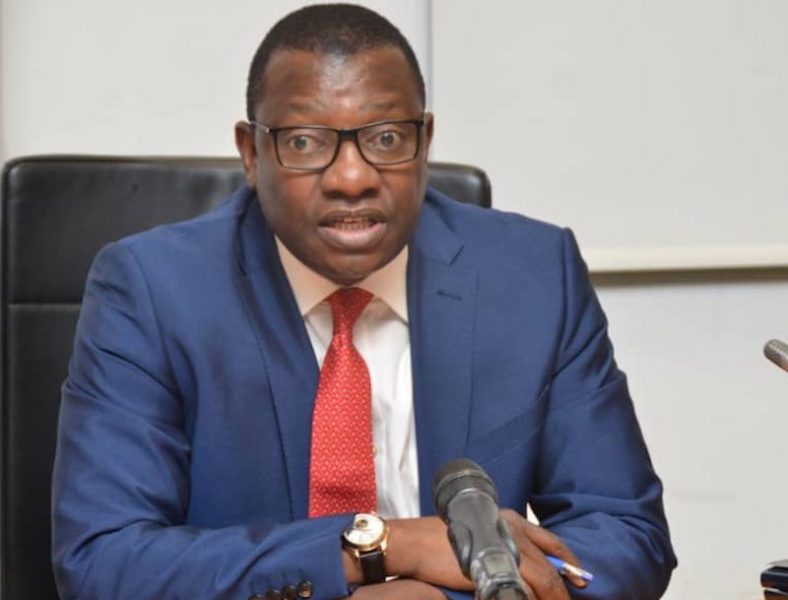The Group General Manager, the National Petroleum Investment Services (NAPIMS), Bala Wunti, has identified factors that make Nigeria’s oil and gas industry to be less attractive to investors in the competitive global market.
According to him, the nation’s oil and industry has become less attractive today because the oil is not clean and it is being discriminated against.
Highlighting the inhibiting factors as dirty oil and high unit operation cost of producing a barrel of oil, the GGM said if the security challenges being experienced in the oil region were fully addressed, the cost would go down and the country would make more money.
Persecondnews.com reports that Wunti spoke while contributing to a virtual conversation titled, “What do investors earn in a $70 oil price as a return? What is the trend of the capital for energy: Where is it going? How is it behaving?’’
He posited that currently out of $70 per barrel, only $10 dollars is left out of which the Federal Inland Revenue Service (FIRS) will collect 85 % of it as taxes, leaving a paltry of $1.5 that will go to investors.
“As of today, we are in the neighbourhood of 20, 22 dollars and if you take 20% off $70 and if you have 22 % you still keep waterfalling. You now invest in your capital expenditure and it will take about 15 dollars and you are still waterfalling, you are likely left with about $10 in a $70 well.
“There are two people that need the $10 dollars – FIRS want their taxes – 85% of the $10 ($8.5) and what is left is crumbs of $1.5 and that is what goes to investors.
“Will the investors be ready to invest in the barrel that way? Certainly, No. what is that you can play with again?’’ Wunti stressed.
The NAPIMS boss, however, expressed the hope that the Petroleum Industry Act (PIA) would remove uncertainties and bring competitiveness into the nation’s oil and gas industry when fully operational.
He said:“The PIA will remove uncertainties and bring clarity and competitiveness. Our view is that numbers will come down but not only that. If we attack the security challenges our cost will invariably go lower. We need to collaborate with service providers – petroleum operators and non-operators. When we do that we can attack the cost of producing the barrel.
“And if we can attack the cost of producing the barrel to say $20 as unit technical cost, then it, therefore, means that what we share with tax man and the investors will increase. The higher it is the better. That is the need and criteria for us to continue to attract the way and manner we finance our barrel.’’
On investment capital, Wunti said there was plenty of money looking for investment destination; where to invest but added that the investors are looking for cleaner energy to invest.
“Our oil and gas certainly as we know is anything but clean especially the oil. We are going to be discriminated against. Capital is no longer non-discriminatory; it is very discriminatory and unfortunately, we are the less attractive industry today.
“The second thing is that everybody wants fast rewards; nobody wants to wait for his rewards in heaven. Nobody wants to wait for 10 years to get the benefits of his investment. You want to invest now and get the rewards next hour.
“This is what we have seen about capital. Contextualize that in our own industry; our industry is a very slow-moving, very long cycle and very rich averse. People want to attract capital,’’ he explained.
Wunti asked:“How can we attract that capital and that has created a balance. Can we create a confluence between data and hydrocarbon for example? Can we create a confluence between oil and non-oil resources?
“Can we create carbon neutrality? Can we anchor our investment focus on our gas which is low carbon-intensive which has the potential to attract more capital?
“And I think that is the prospect and if we do that, it, therefore, means we are not only positioning ourselves to take advantage of the current situation, but we are really ready to explore into the future.’’
Continuing, Wunti said:“If we need to benefit we need to go with two lenses – exploit to the fullest and optimally what you have today. But while doing that, don’t forget that you need to position yourself to take advantage of tomorrow because of relevance.
“Your relevance will create your resiliency, agility and tenacity and that is the question. In financing the barrel, therefore, what does the barrel represent? What is the barrel today – is it $50, $70, or $80 etc ? Do the waterfall. In investment, we talk of waterfall, when you waterfall $70, who takes what?’’
“The first thing that goes is to DPR in terms of their royalty and it is 10%, 20% straight. The first line charges — your operation cost etc. When you have $70 you can take 20% and see what is left,’’ Persecondnews quotes Wunti as saying.























Leave a comment